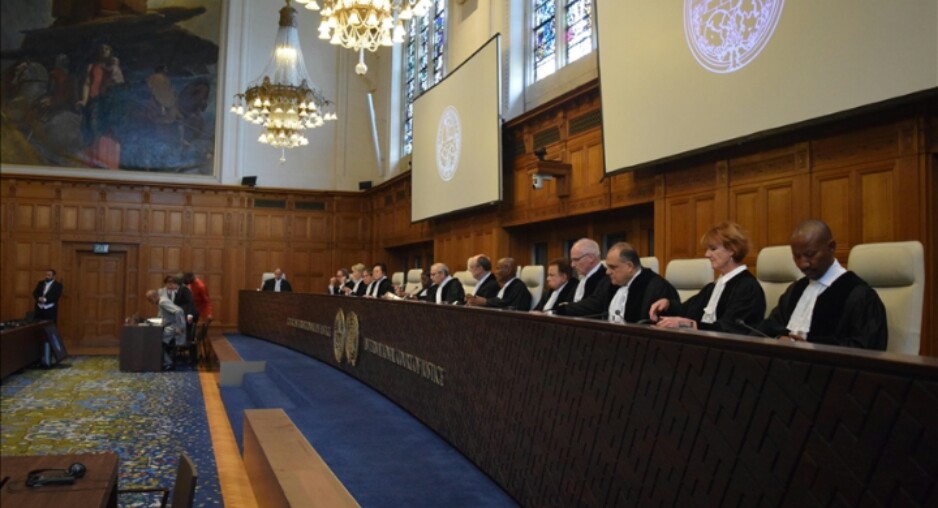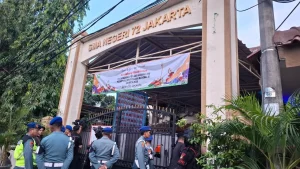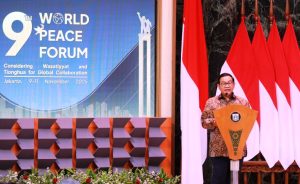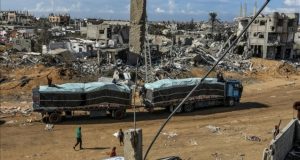The Hague, MINA – The International Court of Justice (ICJ) ruled on Wednesday that Israel is legally obligated under the Fourth Geneva Convention to agree to and facilitate humanitarian relief efforts by third states and impartial organizations, including the International Committee of the Red Cross (ICRC) and the UN agency for Palestinian refugees (UNRWA), to ensure adequate aid reaches the Gaza Strip.
In its advisory opinion, the world court reaffirmed that Israel, as the occupying power, carries an unconditional duty to ensure the basic needs of Gaza’s civilian population are met. It found that the enclave has been “inadequately supplied” under Article 59 of the Convention and therefore requires Israel to permit and assist humanitarian operations.
The court noted that since the events of Oct. 7, 2023, when a Hamas-led raid triggered Israel’s prolonged offensive that killed over 68,000 Palestinians—Israel has severely restricted the flow of humanitarian and medical aid. It blocked aid deliveries entirely on March 2, 2025, allowing only limited entry to resume by May 19.
Rejecting Israel’s allegations that UNRWA staff were linked to armed groups, the ICJ stated that “Israel has not substantiated its claims that a significant portion of UNRWA employees are members of Hamas or other terrorist organizations.” The court also found no evidence of discrimination in UNRWA’s aid distribution based on nationality, race, religion, or political opinion.
Also Read: Pakistan Declares State of War After Car Bomb Incident
“The occupying power may never invoke security concerns to justify the suspension of all humanitarian activities in occupied territory,” the court ruled, emphasizing that Israel’s obligation to facilitate aid is “unconditional.”
The ICJ reiterated that international humanitarian law and the law of occupation apply simultaneously, and Israel must comply with both. It further stressed that Israel remains bound under international law to “respect, protect, and fulfill” the rights of Palestinians living under occupation and must not use starvation as a weapon of war.
“Israel, as an occupying power, is not entitled to sovereignty over any part of the occupied Palestinian territory, including East Jerusalem,” the court said, adding that Israel’s extension of domestic laws to these areas violates the Palestinian right to self-determination.
The ICJ also criticized the US and Israeli-backed Gaza Humanitarian Foundation, saying it operates inconsistently with humanitarian principles. Hundreds of Palestinians were reportedly killed while seeking aid from the group, which human rights organizations described as a “death trap.”
Also Read: Sudan’s Army Ordered to Advance on Darfur to ‘Liberate’ Region from RSF
Finally, the court urged Israel to respect UN immunity, property, and operations in the occupied territories, warning that restricting the UN or humanitarian groups could create “conditions of life that would force the population to leave.”
Israel’s Foreign Ministry dismissed the ICJ’s opinion as “predictable,” with spokesperson Oren Marmorstein alleging that the court ignored “terrorist activity within UNRWA” and claiming that Israel had presented “extensive evidence” of Hamas infiltration into the agency.[]
Mi’raj News Agency (MINA)
Also Read: Trump Pledges Full US Support for Syria Under New President Ahmed al-Sharaa



































 Mina Indonesia
Mina Indonesia Mina Arabic
Mina Arabic